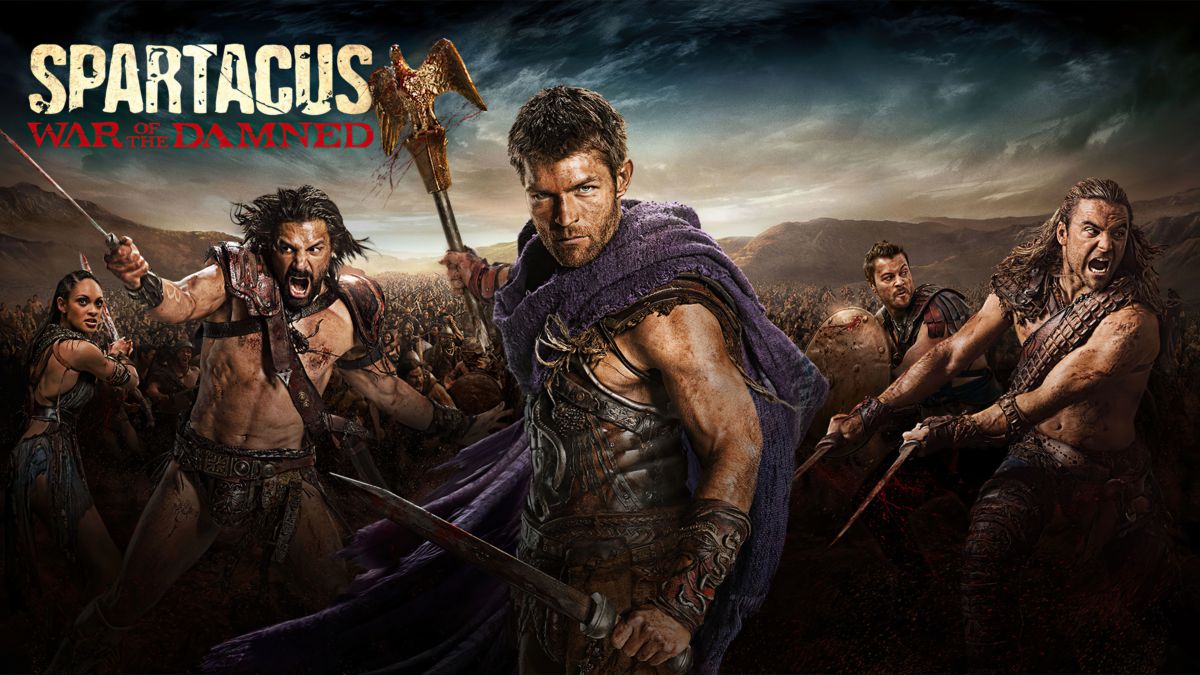
Spartacus, the legendary gladiator and leader of a major slave uprising against the Roman Republic, continues to captivate audiences to this day. His story, filled with courage, determination, and a thirst for freedom, has been the subject of countless books, films, and TV series. But beyond the popular portrayals, there are many fascinating facts about Spartacus that are lesser-known but equally mind-blowing. In this article, we will explore 16 intriguing facts about the man who challenged the might of Rome and became a symbol of resistance. From his humble origins to his military tactics, from his impact on Roman society to his enduring legacy, get ready to delve into the remarkable world of Spartacus.
Key Takeaways:
- Spartacus, a Thracian gladiator, led a massive rebellion against the Roman Republic, inspiring hope and freedom in his followers and challenging the social and political order of ancient Rome.
- Despite being defeated by the Roman general Crassus, Spartacus’ legacy continues to inspire generations, symbolizing the ongoing fight for justice and equality throughout history.
Spartacus was a Thracian gladiator.
Spartacus, the legendary figure of ancient Rome, was originally a Thracian by birth. He was captured by the Romans and enslaved to become a gladiator.
He led a massive slave revolt against the Roman Republic.
Spartacus rose to fame as a gladiator and eventually led a rebellion that consisted of thousands of enslaved individuals, aiming to overthrow the oppressive Roman Republic.
The Third Servile War was led by Spartacus.
Spartacus’ rebellion is famously known as the Third Servile War. It was one of the largest and most dangerous slave uprisings in Roman history.
He successfully defeated several Roman armies.
Despite being vastly outnumbered, Spartacus and his rebel forces achieved several remarkable victories against the Roman armies, showcasing their military prowess.
Spartacus was an expert tactician.
Known for his strategic genius, Spartacus devised effective battle tactics that consistently outwitted the Roman forces, making him a formidable adversary.
His rebellion threatened the stability of Rome.
The uprising led by Spartacus posed a significant threat to the Roman Republic, as it challenged the social and political order of the time.
The rebellion lasted for several years.
Spartacus’ revolt endured for a prolonged period, spanning from 73 BC to 71 BC. This extended timeline demonstrated the resilience and determination of the rebel fighters.
Spartacus inspired hope and freedom in his followers.
As a symbol of resistance, Spartacus inspired a sense of hope and a desire for freedom among his fellow slaves, motivating them to fight for their liberation.
His tactics created fear among the Roman elite.
The unconventional strategies employed by Spartacus and his rebel army struck fear into the hearts of the Roman elite who feared losing their dominance and power.
Spartacus aimed to create a society free of slavery.
Driven by a vision of a world without slavery, Spartacus fought not only for his personal freedom but also for the emancipation of all enslaved individuals.
Crassus eventually defeated Spartacus.
After a series of intense battles, Spartacus’ rebellion was ultimately crushed by the Roman general Marcus Licinius Crassus and his army.
The fate of Spartacus remains a mystery.
Although the details are unclear, it is believed that Spartacus died during the final battle or was captured and executed by the Romans.
His legacy continues to inspire generations.
The story of Spartacus has transcended time and continues to captivate and inspire individuals, reminding us of the power of resilience and the fight for freedom.
Spartacus has been immortalized in books and films.
The tale of Spartacus has been the subject of numerous books, plays, and films, cementing his place in popular culture as a legendary figure of resistance.
His revolt symbolizes the struggle for justice.
Spartacus’ rebellion serves as a powerful symbol of the ongoing fight for justice and equality throughout history, resonating with people across different generations.
The story of Spartacus has been romanticized and mythologized.
Over the years, the story of Spartacus has taken on mythical proportions, with various adaptations and interpretations embellishing the details of his life and revolt.
Conclusion
In conclusion, the story of Spartacus has captivated audiences for centuries. These mind-blowing facts shed light on the incredible life and legacy of this legendary figure. From his humble beginnings as a gladiator to his audacious revolt against the Roman Republic, Spartacus’ story continues to inspire and fascinate people around the world. His bravery, leadership, and determination in the face of adversity have made him a symbol of resistance and freedom. Whether it’s through books, films, or television series, the tale of Spartacus continues to remind us of the power of the human spirit and the fight for justice. So next time you come across Spartacus, remember these astonishing facts that highlight the extraordinary journey of this historical icon.
FAQs
Q: Who was Spartacus?
A: Spartacus was a Thracian gladiator who led a major slave uprising against the Roman Republic.
Q: When did the Spartacus revolt take place?
A: The Spartacus revolt took place between 73 and 71 BCE.
Q: How did Spartacus become a gladiator?
A: Spartacus was captured by the Roman army and sold into slavery, eventually becoming a gladiator.
Q: What was the aim of the Spartacus revolt?
A: The aim of the Spartacus revolt was to overthrow the Roman Republic and secure freedom for enslaved people.
Q: How did Spartacus die?
A: Spartacus died during the final battle of the revolt, but his body was never found.
Q: What impact did Spartacus have on Roman history?
A: Spartacus’ revolt had a significant impact on Roman history, as it highlighted the systemic issues of slavery and inequality within the Roman Republic.
Q: Was Spartacus a real historical figure?
A: Yes, Spartacus was a real historical figure. While the details of his life may be subject to some speculation, his revolt against the Roman Republic is well-documented.
Q: Are there any movies or TV shows about Spartacus?
A: Yes, there have been several adaptations of Spartacus’ story, including the famous 1960 film “Spartacus” directed by Stanley Kubrick and the TV series “Spartacus: Blood and Sand.
Q: What can we learn from Spartacus’ story?
A: Spartacus’ story teaches us about the resilience of the human spirit, the fight for freedom, and the impact of social inequality. It serves as a reminder of the importance of standing up against injustice.
Spartacus's incredible story has captivated audiences for centuries, immortalized in popular culture through books and films. If you're hungry for more thrilling tales, consider exploring the epic 1960 film adaptation, learning about Hungary's Nyíregyháza Spartacus Football Club, or discovering the actor who portrayed this legendary figure in the hit TV series. Each offers a unique perspective on Spartacus's enduring legacy and the power of storytelling to keep his spirit alive. So, whether you're a history buff, sports fan, or simply love a good story, there's plenty more to uncover about this remarkable man and his timeless tale of rebellion and resilience.
Was this page helpful?
Our commitment to delivering trustworthy and engaging content is at the heart of what we do. Each fact on our site is contributed by real users like you, bringing a wealth of diverse insights and information. To ensure the highest standards of accuracy and reliability, our dedicated editors meticulously review each submission. This process guarantees that the facts we share are not only fascinating but also credible. Trust in our commitment to quality and authenticity as you explore and learn with us.


